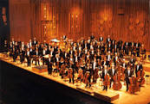To clap or not to clap by Marjorie Arons-Barron
 Presidents have their social secretaries to tell them when to applaud during a White House concert. The rest of us, President Obama says, are on our own. But some of today’s rigid rules need rethinking.
Presidents have their social secretaries to tell them when to applaud during a White House concert. The rest of us, President Obama says, are on our own. But some of today’s rigid rules need rethinking.
Last Saturday night at the Boston Symphony, Peter Serkin performed brilliantly as soloist playing the Brahms Piano Concerto No. 2. The first movement wowed, and moved many to applaud. Too many of us, however, sat on our hands in an all-knowing display of classical musical etiquette. Refreshingly, program notes on the piece prepared by the wise Michael Steinberg appropriately chastised the custom of not applauding between movements as “priggish and anti-musical.” And it is.
Some musical etiquette makes sense. Big hats should not be worn during concerts. Cell phones, private conversations. Jangly jewelry and even heavy perfumes and colognes should be banned, with miscreants drawn and quartered.
But the No Applause Rule, which holds that concert audiences should refrain from any applauding until the entire piece is over, no matter what, no matter how brilliant the performance, no matter how much the movement has lifted your spirit or touched your soul, is outdated. If baseball can introduce instant replays and change its arcane rules, then classical music can modify its hidebound conventions.
Valerie Cruice, author of the book ”When Do I Clap?” observed that “Many people would rather have a root-canal than be faced with the dilemma of when to clap at a concert or opera.” In the final analysis, however, Cruice opts for the tut-tut adherence to convention.
Today when someone – often further back in the hall – is moved to applaud, the cognoscenti smirk knowingly among themselves, smugly satisfied that they know better the tribal rituals. They wait till the end to express their appreciation.
But such an attitude, in the long-run, could be destructive of the art form we want to preserve. It can drive away the very audiences of tomorrow we want to cultivate.
This restrained behavior wasn’t always the preferred choice. And it doesn’t apply to other musical performing arts. Mozart played to the crowds and would have been aghast at audience silence. In ballet or opera, audiences have shown their enthusiasm after the superb execution of complicated dance moves or brilliant singing of an aria. (In the 18th and 19th centuries, opera singers even made sure their fans (claques) were in the house to applaud wildly after their pieces and demand show-stopping encores.)
Changes took place during the late 19th century with the rise of composer/conductors as deities, men like Wagner, Mendelsohn, Mahler who regarded audience involvement as undesirable distractions.
This is not to say that audiences should applaud after every movement, especially quiet ones that invite deep contemplation, such as sacred vocal works. Surely abolishing the No Applause rule shouldn’t mean applause every time there’s a pause in the music, even in the middle of a movement or when a passage turns still. I bristle at audiences who rush to applaud a quiet finale even before the conductor has lowered his baton.
But there is an energy that comes from a shared public experience, like being at major sports event or outdoor concert. If people want to listen to their music in absolute silence, they can stay home and listen to their superbly mastered recordings.
Sometimes spontaneity asserts itself, often, for example, after the first, epic movement of the Tchaikovsky violin concerto in D, a tour de force by itself, before you even get to the other two movements. So too with the first movement of Beethoven’s Emperor Concerto, the third movement of Tchaikovsky’s Pathetique Symphony, Dvorak’s 9th, Beethoven’s 5th, after Mars in Holst’s The Planets and big first movements in other works of Beethoven, Brahms, Greig, and Rachmaninoff.
In the end, I agree with Pianist Emmanuel Ax who supports audience applause when “the music demands it.”
Given the need to expand the audience for classical music, wouldn’t you think that musicians, critics or attendees would support selective expressions of enthusiasm in between movements. Could it be so bad to be moved by brilliance and express our emotions more naturally than restrained convention dictates?
I welcome your comments in the section